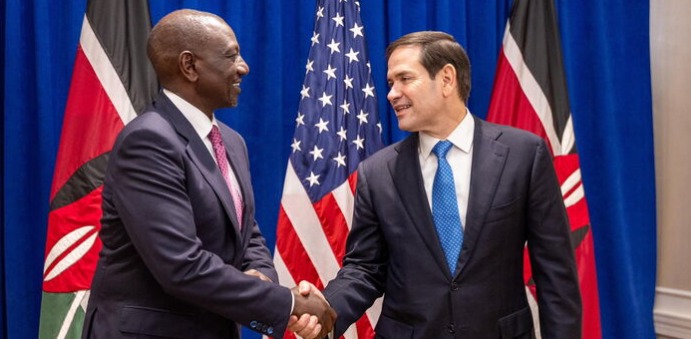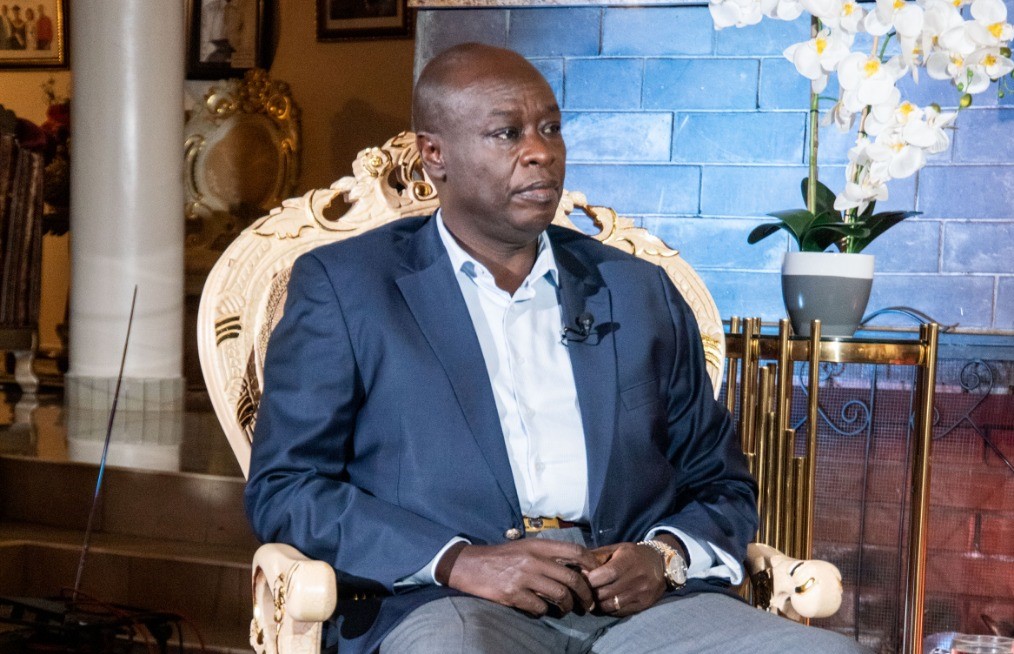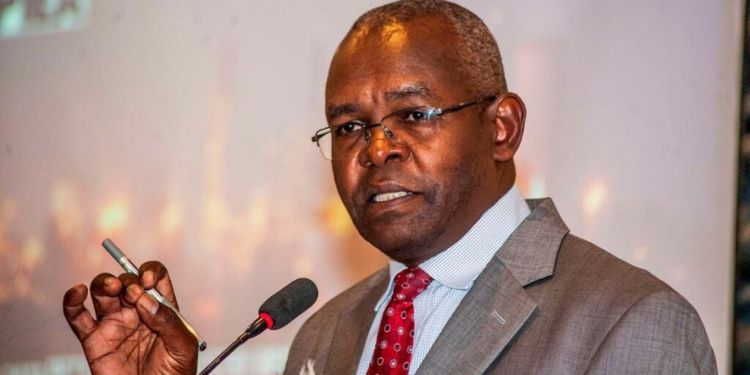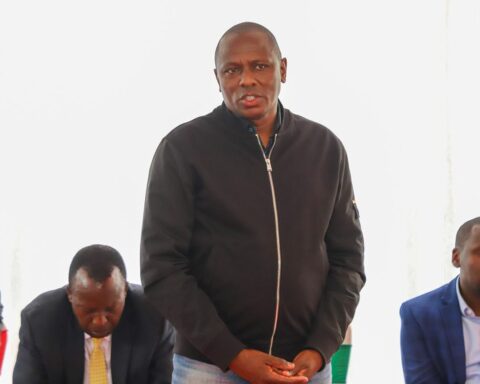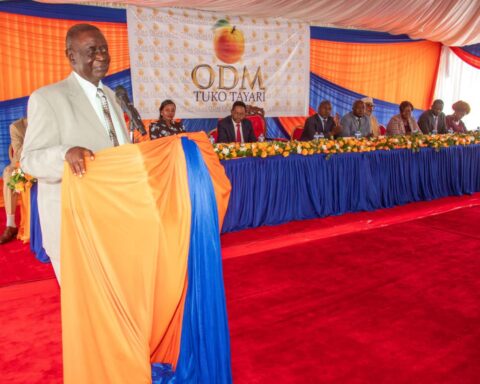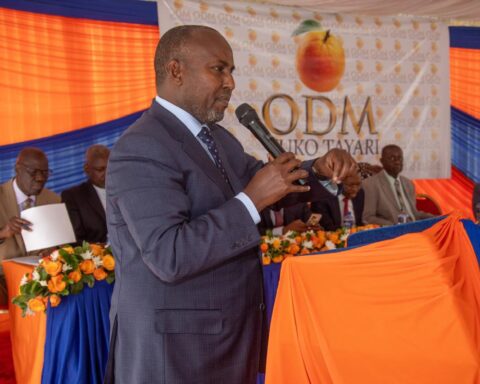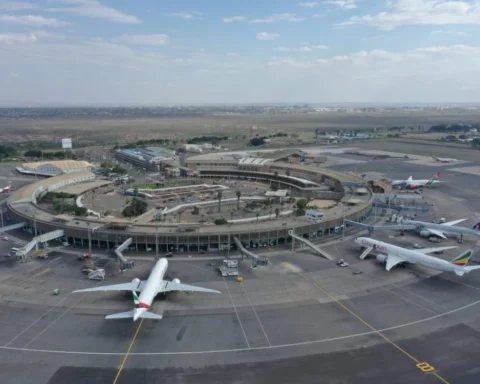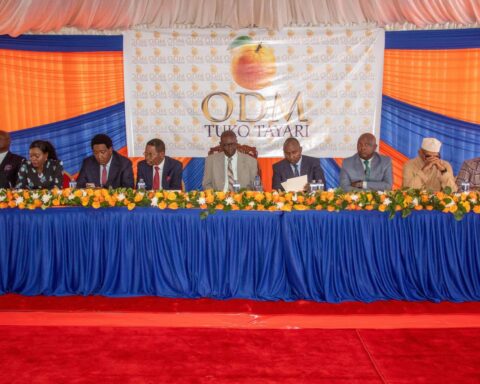President William Ruto on Wednesday held high-level talks with United States Secretary of State Marco Rubio on the sidelines of the United Nations General Assembly (UNGA) in New York, with the worsening crisis in Haiti dominating discussions.
The two leaders jointly called for urgent action at the UN to establish a robust Gang Suppression Force aimed at dismantling the armed criminal groups that have paralyzed Haiti’s security and governance structures. They further stressed the creation of a UN Support Office for Haiti, which would be tasked with handling the logistical and operational needs of the multinational mission.
“Secretary of State Rubio met with Kenyan President Ruto on the margins of the UN General Assembly. The Secretary lauded Kenya’s brave contributions to Haiti’s peace and security,” U.S. Deputy Spokesperson Tommy Pigott said in a statement. He added that both leaders underscored the urgency of reinforcing the international mission to restore stability in the Caribbean nation.
The meeting came just days after President Ruto voiced frustrations over inadequate international support for Kenyan troops stationed in Haiti under the Multinational Security Support (MSS) mission. In his remarks at a high-level UN session earlier this week, Ruto revealed that Kenyan forces were supplied with second-hand vehicles and faced severe budgetary shortfalls, which had hindered their ability to expand operations. Plans to establish 12 forward operating bases stalled, allowing gangs to retake territories previously secured by peacekeepers.
Meanwhile, the United States is pushing to double the number of foreign troops deployed in Haiti to more than 5,000, with discussions underway on whether overall mission command should remain under Kenya’s leadership.
Beyond security, Ruto and Rubio also reviewed opportunities for deeper U.S. investment in Kenya, particularly in infrastructure, energy, and technology.
Separately, in his UNGA address, President Ruto delivered a strong rebuke of global governance systems, warning that Africa would no longer accept being sidelined in critical decision-making forums, particularly at the UN Security Council.
